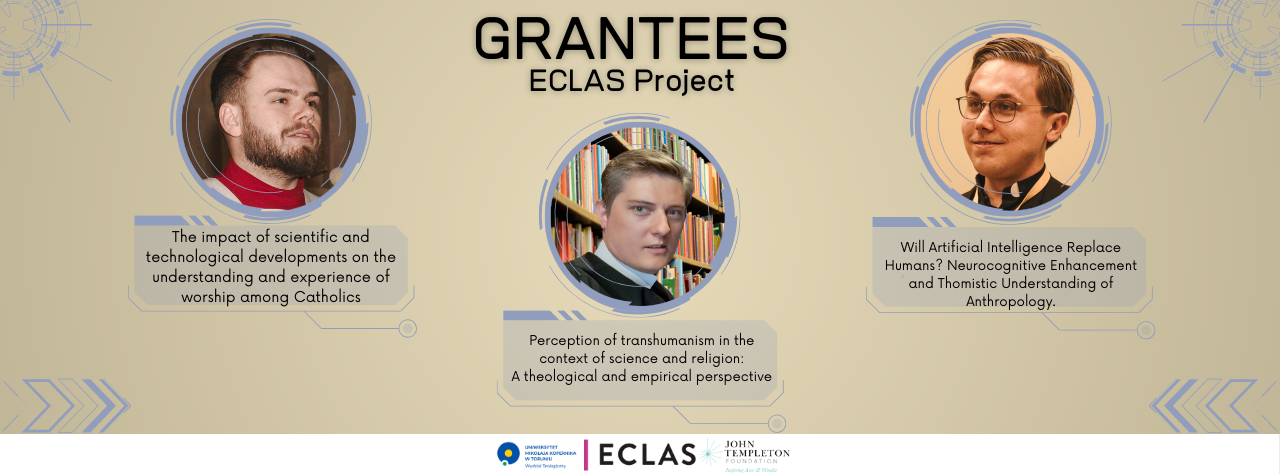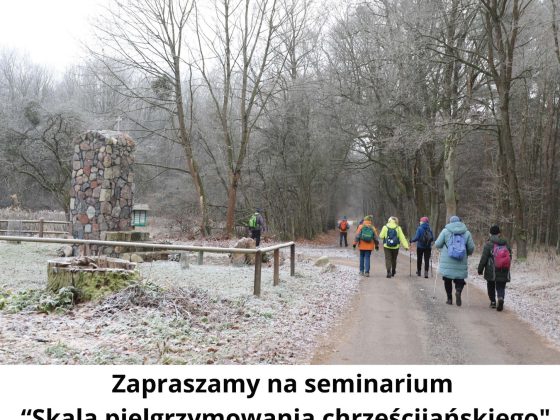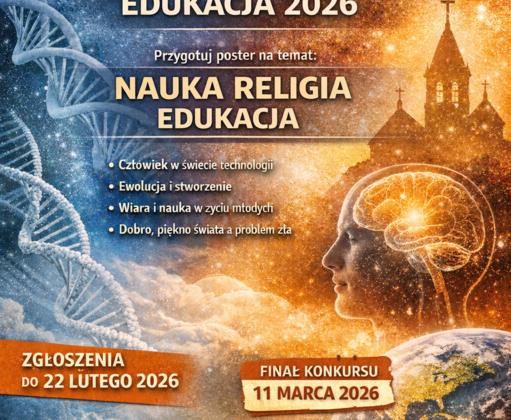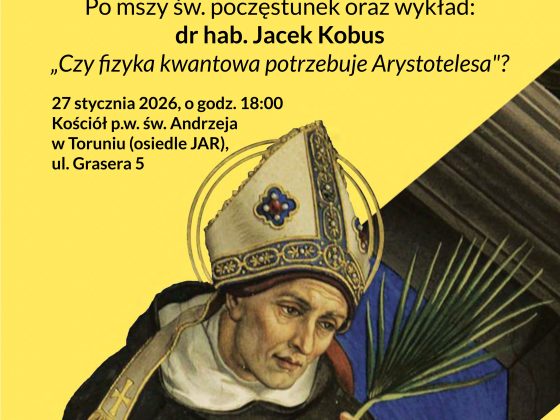Science and religion
Science and religion are two different spheres, very often portrayed as irreconcilable. However, we are concerned with real change – in education, in parishes, in our approach to science and faith. We want to show that these two worlds are not alien to each other. With this in mind, the ECLAS project is an endeavour to show the mutual communication between religion and science.
To this end, we want to work towards equipping Christian leaders with the tools, context and skills they need to confidently engage with science in their ministry and personal faith.
We are very pleased that, as partners in the ECLAS project, we have been able to award three research scholarships to young scholars whose research touches the sphere of dialogue between religion and science. The awardees will receive a stipend of £1,500,000 for one year.
Scholarship recipients:
- Paweł Orzeł CSsR – theologian, vicar of St Joseph’s Parish in Toruń, doctoral student in theology at the doctoral school Academia Artium Humaniorum UMK
Topic: Perception of transhumanism in the context of science and religion: Theological and empirical perspectives. - Michał Kłosowski – theologian, vicar of the Parish of St. Maximilian Maria Kolbe in Grudziądz, doctoral student in theology at Nicolaus Copernicus University in Krakow
Topic: Will artificial intelligence replace humans? Neurocognitive enhancement and Thomistic understanding of anthropology. - Jakub Trendowicz – 5th year theology student at the Faculty of Theology of the Nicolaus Copernicus University, coordinator for promotion and liturgical service of the liturgical centre Mysterium Fidei
Topic: The impact of scientific and technological developments on the understanding and experience of worship among Catholics.
Description of the research
1. Paweł Orzeł CSsR – the research will focus on parish priests from Redemptorist parishes in Poland and Greek-Catholic communities in Ukraine and Slovakia. As leaders closely connected to everyday pastoral care, they offer unique insights into how theology interacts with contemporary issues. I will also attempt to interview lay individuals recommended by these priests, specifically those actively engaged in parish life and the academic or cultural activities of their regions. The study will employ surveys and interviews, analyzing data through a combination of theological and social science methodologies. Special attention will be given to the interplay between doctrinal teachings and the practical realities faced by parish communities.
2. Michał Kłosowski – in my project I will attempt to answer the following research problems. The first is an attempt to answer the question: are methods of enhancing human intelligence ethically acceptable and contribute to growth in the virtue of wisdom? The second problem, on the other hand, concerns understanding the nature and interrelation of natural and artificial intelligence. The research will use the methodological assumptions of philosophy and theology. The scholastic method with its systematic development of the interpretation of Christian doctrine and the transcendental method of theology with its openness to dialogue with the existential experiences of human life will be used. The research will also require the use of the methods of medical, sociological, philosophical and theological sciences, i.e. analysis or synthesis. I plan to conduct a questionnaire among the young people of the Catholic Youth Union of the Archdiocese of Gdansk in order to find out their knowledge of the topic I have taken up. This will make it easier for me to adapt my conclusions to their development. I will also conduct in-depth interviews with scientists working in the field of artificial intelligence.
3. Jakub Trendowicz – in view of the changes that humanity is facing in the 21st century, the aim of the project is to show the impact of scientific and technological developments on the daily experience of worship, especially that which the faithful encounter through participation in the public worship of the Catholic Church (liturgy) or devotions. Consequently, it is envisaged that research will be carried out on the understanding of traditional worship in opposition to the changes that can be observed in contemporary science. The project will be primarily based on a statistical method, which will involve the collection of qualitative data on cult awareness, understanding of the nature of religiosity, technological developments and the relationship between religion and science. Data collection will be targeted at Polish citizens, mainly scientists who specialise in liturgical theology and philosophy of science or empirical research (e.g. physicists), but it is planned to interview selected leaders of parish communities as well. The project will also use the method of content analysis of documents (e.g. statements of the Church’s Magisterium) and analysis of opinion polls (e.g. census).



